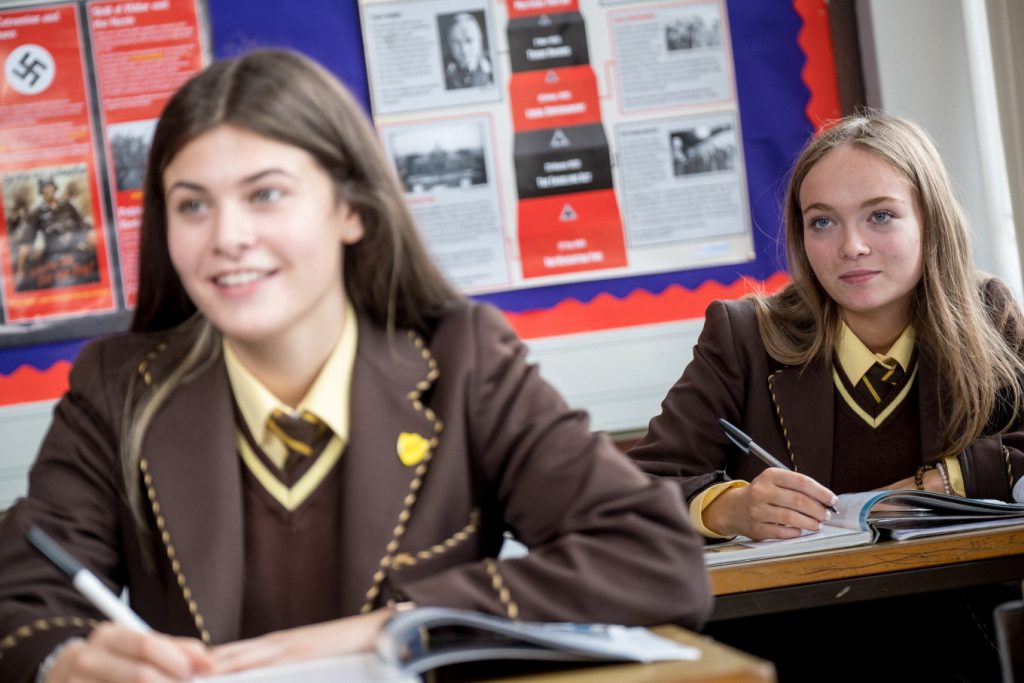GCSE – HISTORY
GCSE – History
Introduction
Apart from being interesting, History is very useful. Employers, who see that you have a qualification in History, immediately know certain things about you. You will have acquired many skills, which are essential in life. These skills can be applied to all sorts of situations.
- You can understand how people think, what motivates them and what they feel.
- You are able to gather and read different types of information.
- You are able to look carefully at this information and can check it for bias or propaganda.
- You can read maps, graphs and other diagrams.
- You are able to communicate clearly and have learnt to express yourself verbally on paper.

Course Content and Method of Assessment
Unit 1 Germany 1933 – 1945.
(60%) Changing Relations – Northern Ireland and its Neighbour: 1965 – 1998.
Unit 2 International Relations: 1945 – 2003.
(40%)
The students sit Paper One at the end of Year 11 and Paper Two at the end of Year 12. Controlled assessment is carried out during Year 12.
Career Opportunities
If you study History you will develop:
- Knowledge about different periods in the past. You can build on this knowledge to become a costume designer, a teacher, a museum worker, an historian, an archivist, a guide or manager in a stately home, an archaeologist, a travel agent, an auctioneer and an antiques dealer.
- The ability to see and present both sides of an argument; you could use this by working in the law, the Civil Service, local government, politics and counselling.
- The ability to organise facts, sift evidence and find things out from different sources; you could use these skills in journalism, the police, environmental health, the tax inspectorate, market research and insurance service.